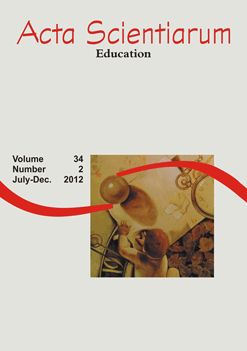<b>Considerations about the origin of a true historiografy: the Treaty of Methuen (1703), the destruction of manufacturing production in Portugal, and the gold of Brazil</b> - doi: 10.4025/actascieduc.v34i2.17014
Abstract
In the mid-eighteenth century flourished in Portugal a concern among the ‘estrangeirados’ about the causes of ‘atraso’ of the kingdom and ways to get his ‘regeneração’. The illustration starts then a Portuguese tradition, the predominant form, but not unanimous, gave the Methuen Treaty (or Treaty of cloths and Wine), 1703, the source of the problems of not development of the Lusitanian manufacturing and appropriation of the gold produced Brazil. This work has as main objective to reflect on the construction of this school and explaining their persistence in the history taught in Brazil.
Downloads

This work is licensed under a Creative Commons Attribution 4.0 International License.
DECLARATION OF ORIGINALITY AND COPYRIGHTS
I declare that this article is original and has not been submitted for publication in any other national or international journal, either in part or in its entirety.
The copyright belongs exclusively to the authors. The licensing rights used by the journal are the Creative Commons Attribution 4.0 (CC BY 4.0) license: sharing (copying and distributing the material in any medium or format) and adaptation (remixing, transforming, and building upon the material thus licensed for any purpose, including commercial purposes) are permitted.
It is recommended that you read this link for more information on the subject: providing credits and references correctly, among other crucial details for the proper use of the licensed material.















































